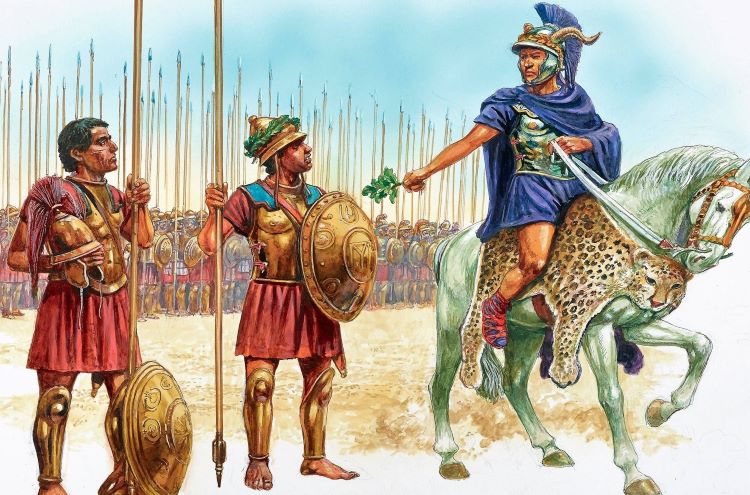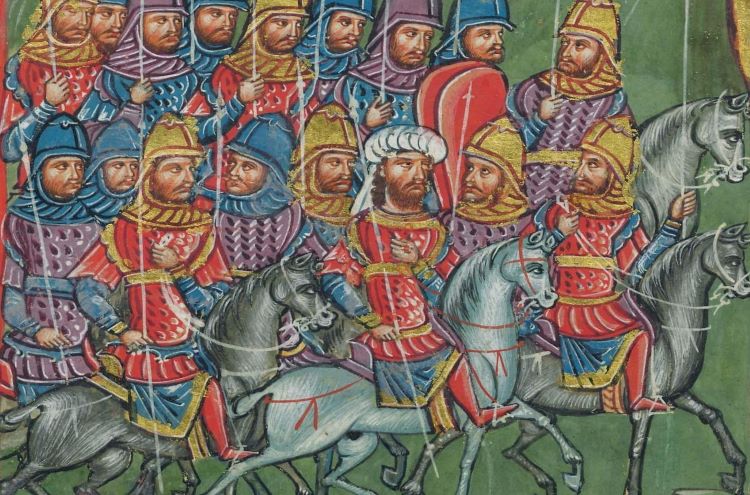
Three Epic Duels That Actually Happened in the Hellenistic Era
The Hellenistic Era swept three continents into perpetual wars for military supremacy. Among countless battles, there were several instances when military leaders themselves stepped in and engaged in hand-to-hand combat. Below, we publish three such epic duels as described by ancient authors themselves.
Neoptolemus of Epirus vs Eumenes of Cardia
Described by: Plutarch
“In the meantime, Neoptolemus also was engaged with Eumenes. They had long hated one another with a deadly hatred, but in two onsets neither had caught sight of the other; in the third, however, they recognized each other, and at once drew their swords and with loud cries rode to the attack. Their horses dashed together with the violence of colliding triremes and dropping the reins they clutched one another with their hands, each trying to tear off the other’s helmet and strip the breastplate from his shoulders. While they were struggling, their horses ran from under them and they fell to the ground, where they closed with one another and wrestled for the mastery. Then Eumenes, as Neoptolemus sought to rise first, gave him an undercut in the ham, and himself got to his feet before his adversary did; but Neoptolemus, supporting himself on one knee, and wounded in the other, defended himself vigorously from underneath. He could not, however, inflict fatal wounds, but was himself wounded in the neck, fell to the ground, and lay there prostrate. 7 His sword, however, he still retained, and while Eumenes, transported with rage and ancient hatred, was stripping off his armor and reviling him, Neoptolemus surprised him with a wound under the breastplate, where it reaches the groin. But the blow gave Eumenes more fright than harm since lack of strength made it feeble”. (VII. IV-VII).

Pyrrhus of Epirus vs Pantauchus
Described by: Plutarch
“There was a sharp and terrible conflict between the soldiers who engaged, and especially also between the leaders. For Pantauchus, who was confessedly the best of the generals of Demetrius for bravery, dexterity, and vigour of body, and had both courage and a lofty spirit, challenged Pyrrhus to hand-to‑hand combat; and Pyrrhus, who yielded to none of the kings in daring and prowess, and wished that the glory of Achilles should belong to him by right of valour rather than of blood alone, advanced through the foremost fighters to confront Pantauchus. At first, they hurled their spears, then, coming to close quarters, they plied their swords with might and skill. Pyrrhus got one wound, but gave Pantauchus two, one in the thigh, and one along the neck, and put him to flight and overthrew him; he did not kill him, however, for his friends hauled him away. Then the Epeirots, exalted by the victory of their king and admiring his valour, overwhelmed and cut to pieces the phalanx of the Macedonians, pursued them as they fled, slew many of them, and took five thousand of them alive”. (VII. IV-V).

Lysimachus vs Seleucus I Nicator/Malacon
Described by: Appian & Memnon
“Seleucus had seventy-two satraps under him, so extensive was the territory over which he ruled. The greater part he had transferred to his son, but he continued to reign over the country which lies between the Euphrates and the sea. The last war that he waged was with Lysimachus, for the possession of Phrygia on the Hellespont. Lysimachus was defeated and slain in battle”. (X. LXII.).
[According to Memnon V. VI, Lysimachus was killed “after being struck by a spear which was thrown by a man from Herakleia called Malacon, who was fighting for Seleucus”].






